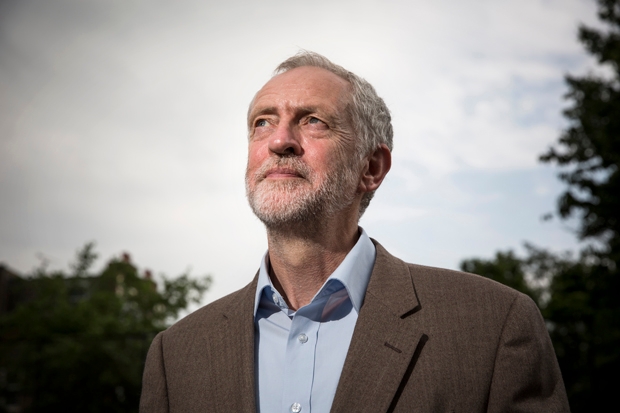Is the ‘Tories for Corbyn’ campaign politics at its most infantile? As one of the few conservative commentators willing to defend it in the media, I’ve been doing my best to rebut that charge.
The most frequent line of attack is that there’s something dishonest about it. The Labour leadership election isn’t an open primary. It’s restricted to members, registered supporters and affiliated supporters. OK, you can register as a supporter for £3 — a change brought in by Ed Miliband to reduce union influence — but only if you pretend to be a Labour sympathiser. And that’s just wrong.
The short answer to this is that no such pretence is necessary — at least, it wasn’t when I signed up via the party’s website. In response to the question ‘Why did you sign up?’, I wrote ‘To consign Labour to electoral oblivion’. Nothing fraudulent about that.
All right, say the critics. You may not have lied, but you’re acting in bad faith. You’re taking advantage of a loophole to subvert a democratic process. That’s fundamentally dishonest, even if it’s not duplicitous. It’s unethical, rather than immoral.
I think I have to put my hands up to that, but politics has never been ethical. Indeed, one of the unwritten rules of democratic politics is that it’s OK to behave dishonestly provided you don’t tell an outright untruth. This was summed up by Alex Salmond when cross-examined by Andrew Neil on the Daily Politics about his slipperiness regarding the ‘legal advice’ the Scottish government had received on an independent Scotland and the EU. ‘The art of politics is not to lie,’ he said.
What he meant is that it’s perfectly acceptable to say any number of things that encourage people to believe something untrue, provided you don’t tell an out-and-out falsehood. Presumably, that’s why it was fine for the Scottish National Party to give the impression it was anti-austerity during the election campaign, even though its manifesto committed it to the same spending cuts as Labour.
The other main objection to ‘Tories for Corbyn’ is that it’s kicking your opponent when he’s down. Again, that’s true, but since when did the Queensberry Rules apply to politics? Political combat isn’t a bantamweight boxing match. It’s Ultimate Fighting — hit first, hit hard and hit often.
The Labour party has made two silly mistakes. It has changed the rules regarding who can vote in leadership elections in a way that makes it easy for people like me to exploit them. And it has put up a candidate in the leadership election who, if he wins, will render the party unelectable. Or rather, even more unelectable than it was under Ed Miliband, which is going some. If that debacle comes to pass — and Corbyn has a 17-point lead, according to YouGov — it’s hard to see how Labour could recover for a decade. It might even lead to an irrevocable split. To expect the party’s opponents not to take advantage of that opportunity is naive.
The other thing to bear in mind is that it’s unlikely that ‘Tories for Corbyn’ will have any influence over the result. Around a quarter of a million people are expected to vote in this election and I don’t suppose that more than a few hundred Tories will bother to become registered supporters. The point of the campaign is not to rig an election, but to draw attention to the fact that a sizable number of Labour MPs, trade union bosses and party activists think a man who describes Hezbollah and Hamas as his ‘friends’ is fit to be Prime Minister. The Labour party has always tried to hide its less attractive face from the public — the side that hates America, overlooks human-rights abuses in Cuba and Venezuela and has more sympathy for Britain’s enemies than it does for Britain. So when that face emerges from the shadows, you can’t blame Tories for pointing at it and saying, ‘Look!’
It’s also a good way to wind up the comrades, which isn’t as puerile as it sounds. Last week, I attended the summer party of CTF Partners, the research firm run by Tory election guru Lynton Crosby, and Crosby gave a speech in which he said that politics is a strange combination of passion and reason. To win, you need to make sure your head rules your heart, not vice versa. That’s why baiting your opponents is effective — it makes it harder for them to keep their cool. ‘Tories for Corbyn’ isn’t just a bit of fun. It’s an effective political weapon.







Comments